Unleashing the Hidden Potential
In today's fast-paced and competitive world, professionals are constantly seeking ways to stay ahead and accelerate their careers. While networking, skill-building, and professional development programs are crucial, there's an often overlooked tool that can have a profound impact on your professional growth—journaling. Yes, you read that right. Journaling is not just for personal musings and heartfelt confessions. It's a powerful method for self-reflection and personal development that can supercharge your career. In this article, we will explore how you can leverage the simple act of journaling to unlock your hidden potential, gain clarity, boost productivity, and ultimately achieve greater success.
Supercharge Your Career with a Journal: What's the Buzz About?
Many successful professionals swear by the power of journaling to fuel their career advancement. But what exactly is it about journaling that makes it so effective? Let's delve into the reasons behind this phenomenon and discover how you can harness this incredible tool to transform your career trajectory.
1. Self-Reflection: A Path to Clarity and Growth
Journaling offers a unique opportunity for self-reflection, allowing you to gain deeper insights into your thoughts, emotions, and actions. By setting aside dedicated time to write about your professional experiences, challenges, and successes, you create a space for introspection. This process enables you to identify patterns, recognize areas for improvement, and celebrate your achievements. Through this heightened self-awareness, you can make more informed decisions, align your actions with your goals, and foster personal and professional growth.
2. Goal Setting and Tracking: Mapping Your Journey
Goals play a pivotal role in career progression. Journaling provides a powerful framework for setting, tracking, and evaluating your goals. By documenting your ambitions and breaking them down into actionable steps, you create a roadmap for success. Regularly revisiting and updating your goals in your journal helps you stay focused, motivated, and accountable. As you achieve milestones, you can celebrate your progress and gain a sense of fulfillment, boosting your confidence and propelling you further towards your ultimate objectives.
3. Amplify Creativity and Problem-Solving Skills
A journal serves as a blank canvas for your ideas, dreams, and aspirations. Engaging in free-flow writing, brainstorming, and mind-mapping exercises stimulates your creativity and enhances your problem-solving abilities. The act of putting pen to paper allows you to explore new perspectives, generate innovative solutions, and overcome professional challenges. As you record your thoughts and ideas, you create a rich repository of insights that you can revisit and draw inspiration from whenever needed.
FAQs
FAQ 1: How do I start journaling for my career?
Getting started with journaling for your career is simpler than you might think. Begin by dedicating a specific time each day or week for journaling. Find a quiet and comfortable space where you can focus without distractions. Choose a journal or notebook that appeals to you and start by writing about your professional experiences, goals, challenges, and aspirations. Remember, there are no right or wrong ways to journal—make it your own and let your thoughts flow freely.
FAQ 2: Can journaling really impact my career?
Absolutely! Journaling can have a profound impact on your career by helping you gain clarity, track progress, identify opportunities, and develop new skills. It enhances self-awareness, boosts creativity, and strengthens problem-solving abilities. By consistently journaling, you can tap into your potential, set meaningful goals, and take actionable steps towards professional success.
FAQ 3: How can journaling improve my productivity?
Journaling can significantly improve your productivity by providing a structured way to plan and prioritize your tasks. By jotting down your daily or weekly to-do lists, you can organize your workload and ensure that important tasks receive proper attention. Additionally, reflecting on your productivity levels in your journal allows you to identify time-wasting activities or areas for improvement, enabling you to optimize your efficiency and make the most of your working hours.
FAQ 4: What are some effective journaling techniques for career growth?
There are various journaling techniques you can employ to maximize your career growth. Here are a few examples:
- Gratitude Journaling: Dedicate a section of your journal to expressing gratitude for professional opportunities, achievements, and supportive colleagues. Focusing on gratitude helps cultivate a positive mindset and fosters a sense of fulfillment and motivation.
- Reflective Prompts: Use thought-provoking questions as prompts to guide your journaling sessions. For instance, ask yourself, "What did I learn from today's challenges?" or "What steps can I take to improve my skills?"
- SWOT Analysis: Perform a regular SWOT (Strengths, Weaknesses, Opportunities, Threats) analysis in your journal to assess your professional standing objectively. This analysis helps you identify areas where you excel, areas for improvement, potential opportunities, and external factors that may pose challenges.
FAQ 5: Can journaling help in networking and relationship-building?
Absolutely! Journaling can be a valuable tool for networking and relationship-building in your professional life. You can use your journal to jot down notes from networking events, conferences, or meetings, capturing important details about the individuals you meet. This information can help you personalize future interactions, strengthen connections, and demonstrate your genuine interest in others' work. Additionally, reflecting on your networking experiences allows you to assess the effectiveness of different approaches and refine your strategies for building meaningful professional relationships.
FAQ 6: How can I stay consistent with journaling?
Consistency is key when it comes to journaling. To stay motivated and committed, consider the following tips:
- Set a Routine: Establish a regular journaling routine by allocating a specific time each day or week for your journaling practice. Treat it as a non-negotiable appointment with yourself.
- Make It Enjoyable: Personalize your journaling experience by using colorful pens, stickers, or illustrations. Make it a creative outlet that you look forward to.
- Accountability Partner: Find a journaling buddy or an accountability partner who shares similar goals. You can motivate each other, share insights, and hold each other accountable.
- Track Progress: Regularly review your journal to track your progress, celebrate achievements, and identify areas for improvement. Seeing tangible evidence of your growth can fuel your motivation to continue journaling.
Conclusion
In conclusion, journaling is a powerful tool that can supercharge your career by fostering self-reflection, goal setting, creativity, and problem-solving skills. By dedicating time to journaling, you unlock your hidden potential, gain clarity, and develop a deeper understanding of your professional journey. Embrace the practice of journaling, experiment with different techniques and find what works best for you. Whether it's gratitude journaling, reflective prompts, or SWOT analysis, journaling can help you navigate the challenges of your career and seize opportunities for growth.
Remember to stay consistent and make journaling an integral part of your routine. By doing so, you'll not only gain insights into your professional life but also foster personal development and propel your career forward.
So, why wait? Grab a journal, pick up a pen, and embark on a transformative journey of self-discovery and career enhancement. Supercharge your career with a journal and unlock the door to endless possibilities.

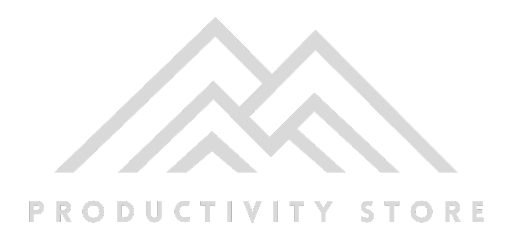






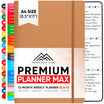





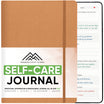

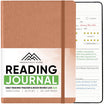
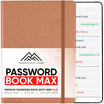
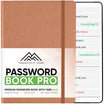




Leave a comment
All comments are moderated before being published.
This site is protected by hCaptcha and the hCaptcha Privacy Policy and Terms of Service apply.